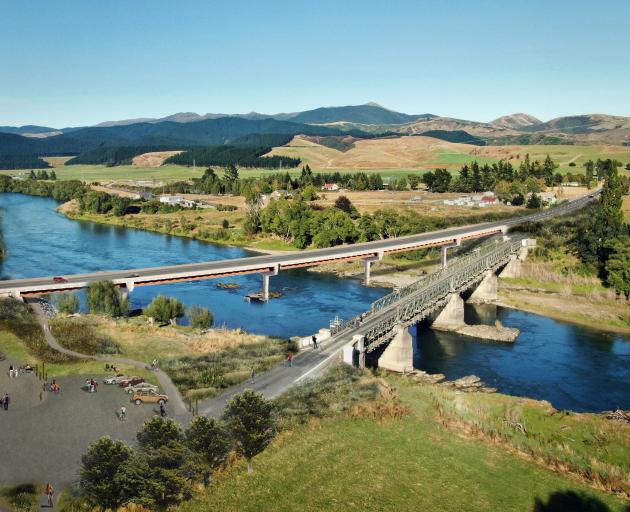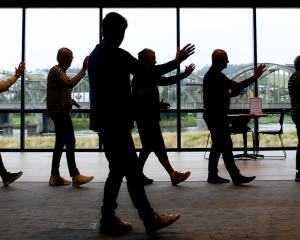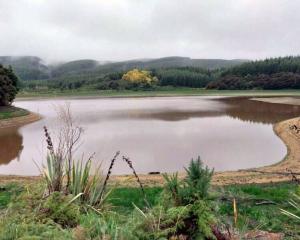
The NZ Transport Agency announced yesterday a contract had been awarded to build the new, two-lane bridge over the Clutha River at Beaumont, part of State Highway 8.
Agency principal project manager Colin MacKay said the $25million construction contract had been awarded to Christchurch construction company HEB Construction.
The 137-year-old single-lane, wrought iron bridge is formed an important link on SH8 between Dunedin, Central Otago and Queenstown, Mr MacKay said.
‘‘However, it’s no longer suited to today’s higher traffic volumes, and the growing number of larger trucks using this highway.’’
The agency anticipated crews would start setting up on the new bridge site in the coming weeks, and work was expected to start on the bridge from the end of this year.
The aim was to have the ‘‘long-awaited’’ bridge open in the second half of 2024.
Clutha Mayor Bryan Cadogan said he was pleased to see progress at the Beaumont Bridge site.
‘‘This is another key commitment to the Clutha District from Waka Kotahi and ensures greater access through to Central Otago with a bridge that is designed to meet modern requirements.’’
The new bridge had been designed to meet expected traffic growth, including heavier trucks, and modern earthquake standards.
After the new bridge opened, the historic one-lane bridge would continue to serve the area by providing a link to the popular nearby Clutha Gold walking and cycling trail.
The new bridge would be a key contributor to creating a transport system for Otago and Clutha that was safe, resilient, met current and future needs, and connected people, products and places, Mr MacKay said.
At 195m long, the bridge would be formed by curved steel girders, supported by four piers and sit about 12m above the average river level.
Safety barriers would be fitted on the road approaches, and a 2m-wide walking and cycling pathway would be a feature of the bridge design.












